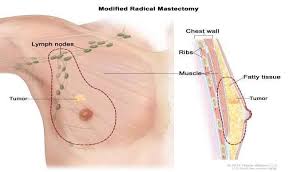Source: dailytrust.com.ng
Dr Dauda Adekunle an Abuja based Obstetrician, has advised women who intend to go for breast implants that breast augmentation would not prevent their breast from sagging. Adekunle gave the advice in interview with News Agency of Nigeria (NAN) on Monday in Abuja.
According to him, women who believe breast augmentation will correct sagging breast should have a rethink, because they will also need a breast lift in addition to the breast augmentation.
“You might need additional surgery after breast implant removal. If you decide to have your implants removed, you might need a breast lift or other corrective surgery to help restore your breasts’ appearance,” he said.
He said that breast implants were not guaranteed to last a lifetime, stating that the average life span of an implant was 10 years.
“Implant rupture is a possibility, also, your breasts will continue to age, and factors such as weight gain or weight loss might change the way your breasts look,” he said.
The obstetrician also stressed that these issues would likely lead to more surgeries.
“You might need an MRI scan, which is a recommended routine monitoring with MRI after three years.
“However, recent studies show that there’s little data to support routine screening unless you have symptoms,” he disclosed.
He noted that mammograms might be more complicated, noting that women with breast implants, in addition to routine mammograms, would require additional specialised view.
Adekunle said that breast implants might hamper breast-feeding; which he said some women were able to successfully breast-feed their babies after breast augmentation, but for others breast-feeding was a challenge.
Speaking of the risk factors, he said breast augmentation posed various risks, including: scar tissue that distorts the shape of the breast implant “capsular contracture”, breast pain, infection, changes in nipple, breast sensation and implant leakage or rupture.
He noted that correcting these complications might require more surgery, either to remove or replace the implants.
Adekunle quoted “the Food and Drug Administration (FDA), as identifying a possible association between breast implants and the development of breast anaplastic large cell lymphoma (ALCL).”
He said that ALCL was a rare cancer of the immune system, adding that the FDA believed that women with breast implants might have a very low but increased risk of developing ALCL.
Adekunle, however, said that further research was needed to fully understand the relationship between ALCL and breast implants
The obstetrician urged women who were considering a breast augmentation to speak with their doctors for further enlightenment and consideration.
“For some women, breast augmentation is a way to feel more confident, while for others, it’s part of rebuilding the breast for various conditions,” he said.
According to him, there is need to discuss your goals with your surgeon so that you can be realistic about what breast augmentation can do for you.(NAN)
